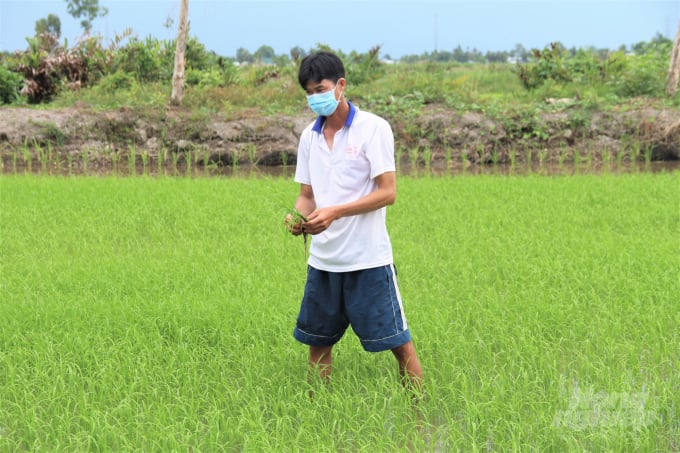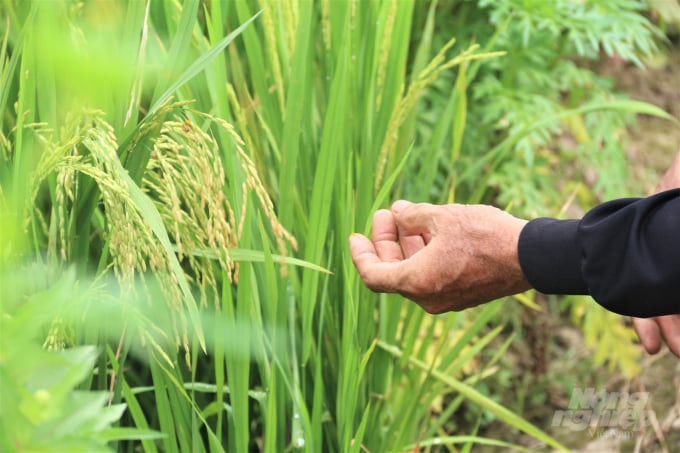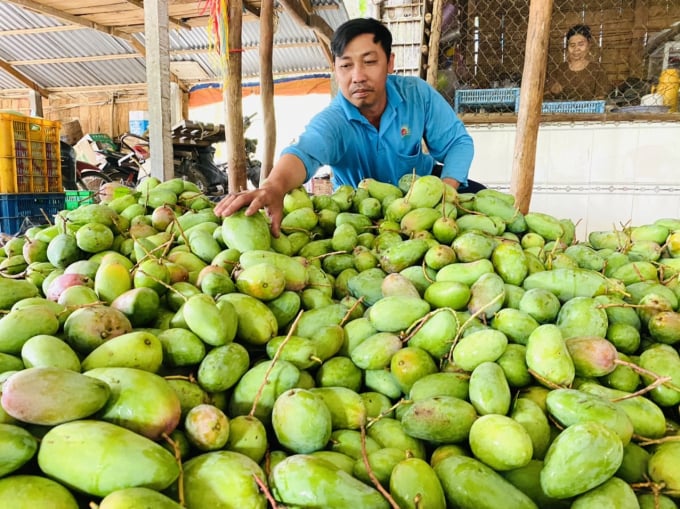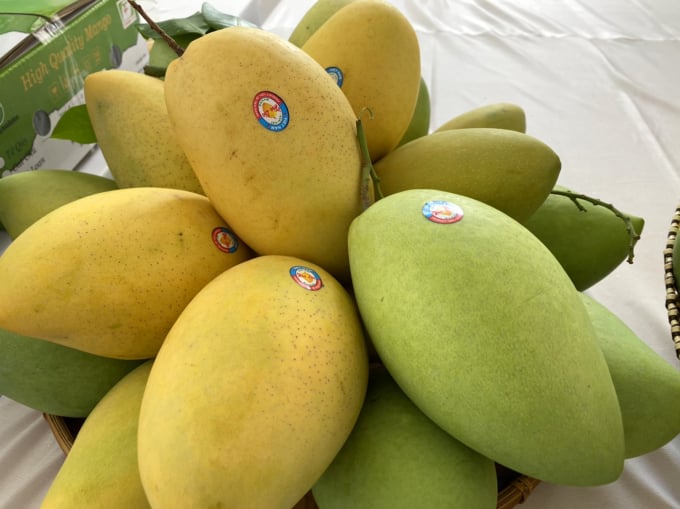May 30, 2025 | 20:51 GMT +7
May 30, 2025 | 20:51 GMT +7
Hotline: 0913.378.918
May 30, 2025 | 20:51 GMT +7
Hotline: 0913.378.918

The impacts of climate change have driven a series of challenges to the Mekong Delta economic region. Photo: Pham Hieu.
The Mekong Delta is Vietnam's largest agricultural production hub, accounting for more than 50% of total rice production, 70% of fruit production, and 95% of rice exported by the nation. However, intensive agricultural and seafood production, along with the effects of climate change, has created a succession of difficulties for the core economic region.
Over the last several years, the Vietnamese government has implemented a number of policies and guidelines, called on investments, and enlisted international assistance to carry out development programs that assist the Mekong Delta in restructuring and transforming its agricultural sector focus.
The transition is aimed at achieving sustainable development, adapting to climate change in a flexible manner, human protection, and ecological balance in the area.
The German government has consistently undertaken several agricultural, environmental, and climate change adaptation initiatives in the Mekong Delta, assisting Vietnam in its attempts to sustainably develop the area.
The Green Innovation Center Project in Vietnam's Agriculture and Food Industry (GIC Vietnam) is the German Government's next package of technical assistance commitments, coordinated and implemented by the Ministry of Economic Cooperation and Rural Development (MARD), the German Development Cooperation Organization (GIZ), and the governments of six provinces, including An Giang, Dong Thap, Can Tho, Hau Giang, Kien Giang, and Soc Trang during 2020-2014.

The GIC Vietnam project will be implemented in 6 provinces of An Giang, Dong Thap, Can Tho, Hau Giang, Kien Giang and Soc Trang from 2020-2024. Photo: Pham Hieu.
The GIC Vietnam Project will assist farmers in improving the quality of their goods to meet requirements by encouraging and building their ability to implement innovative solutions and competitive economic models. worldwide market norms of quality.
The project will contribute to the sustainable improvement of agricultural systems, therefore increasing the efficiency of natural resource management and use, as well as increasing resistance and flexibility to the effects of climate change. Rice and mango are the two primary agricultural value chains in the Mekong Delta.
The five-year GIC Vietnam initiative will assist 20,000 small-scale farming families in enhancing the quality of their goods and increasing their revenue by 15% to 20%. The stakeholder will be taught and will adopt ways to mitigate negative environmental consequences.

The project will strengthen the adaptability and resilience of the two key agricultural value chains in the Mekong Delta including rice and mango to climate change. Photo: Le Hoang Vu.
The project would support private sector engagement, particularly small and medium-sized firms and cooperatives, in order to establish links between producers and businesses and to foster direct collaboration based on shared requirements and interests of value chain participants.
Participating enterprises and cooperatives will be able to enhance their capacity and production processes, consequently increasing a variety of critical business performance metrics. Around 200 new employment are created, mostly for women and young people.
Mr. Le Duc Thinh, Director of the Department of Economic Cooperation and Rural Development, said that Vietnam is very appreciative of Germany's ongoing assistance in accelerating the transition to green and sustainable development. in the agriculture industry, sustainable.
Vietnam is anticipated to join the Project with the primary objective of fostering the development of innovative, appropriate, and realistic economic models for deployment in the two value chains of rice and mango in the Mekong Delta area. The initiative has a good effect by assisting in the enhancement of the quality, development of the image, and positioning of Vietnamese agricultural products in tough markets such as Europe or the United States.

The quality of agricultural products will be improved to meet international market standards. Photo: Le Hoang Vu.
GIC Vietnam is a component of the Green Innovation Centers Program in Agriculture and Food (GIC), a part of the German Federal Ministry for Economic Cooperation and Development's (BMZ) global anti-poverty initiative One World, No Hunger, which is being implemented in 15 countries in Africa and Asia by the German Development Cooperation (GIZ). Thus, in addition to assisting in the sustainable development of agricultural and rural regions in Vietnam, the GIC Vietnam Project contributes to the initiative's purpose.
The project will gather, evaluate, record, and share with member nations all effective models, successes, and lessons learned from activities performed in Vietnam. Members of the GIC Program and other nations engage in South-South and South-North collaboration via regional and international conferences, seminars, study excursions, the sharing of practical experiences and publications, and the development of knowledge management products.
Translated by Linh Linh

(VAN) Several scientists and farmers are experimenting with soil treatment in some key durian-growing regions such as Cai Lay (Tien Giang), Dak Song, Gia Nghia, and Dak R’lap (Dak Nong).
/2025/05/25/4127-3-073637_820.jpg)
(VAN) Thanks to the promotion from an FAO-implemented project, vegetable production in greenhouses in Moc Chau has seen strong development, from 1.5 hectares in 2021 to nearly 50 hectares in 2024.

(VAN) FAO has recently supported USD 140,000 to implement the project 'Risk mitigation human-animal interface risks through disease control initiatives in pig farming.'

(VAN) The People's Committee of Tra Vinh province has approved an adjustment to the investment policy for the Green Hydrogen Plant project, increasing its area to approximately 52.76 hectares.
![Reducing emissions from rice fields: [2] Farmers’ commitment to the soil](https://t.ex-cdn.com/nongnghiepmoitruong.vn/608w/files/news/2025/05/05/dsc08881jpg-nongnghiep-140632.jpg)
(VAN) Clean rice cultivation model in Thuong Tan commune, Bac Tan Uyen district, is assisting local residents in achieving sustainable agriculture by substantially reducing costs, increasing productivity, and protecting the environment.

(VAN) At the conference to disseminate Resolution No. 68, AgriS introduced its digital agricultural ecosystem and reaffirmed its commitment to accompanying the Government in promoting private sector development and sustainable agriculture.

(VAN) 'Blue Ocean - Blue Foods' initiative is designed to restore marine ecosystems and establish sustainable livelihoods for local communities by cultivating a minimum of 1,000 hectares of cottonii seaweed in the first three years.